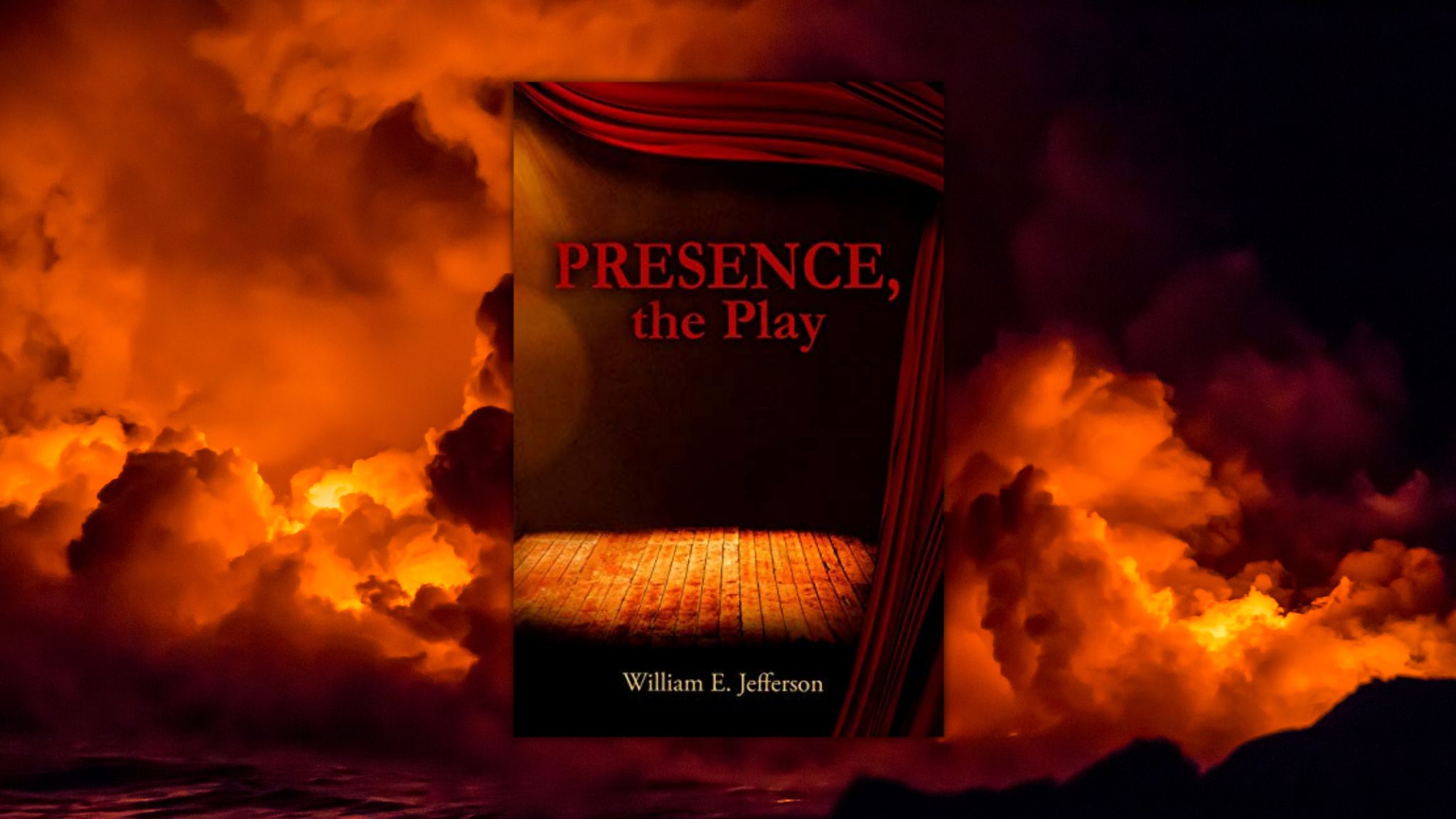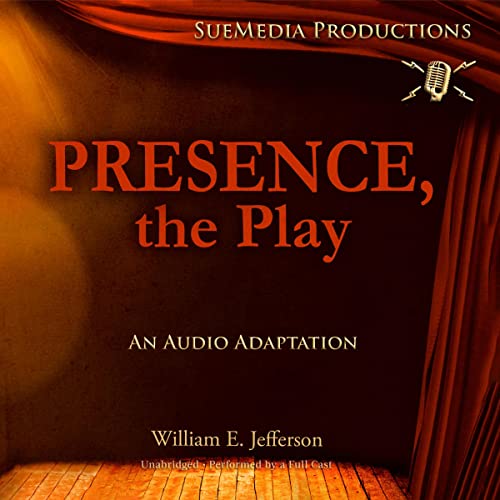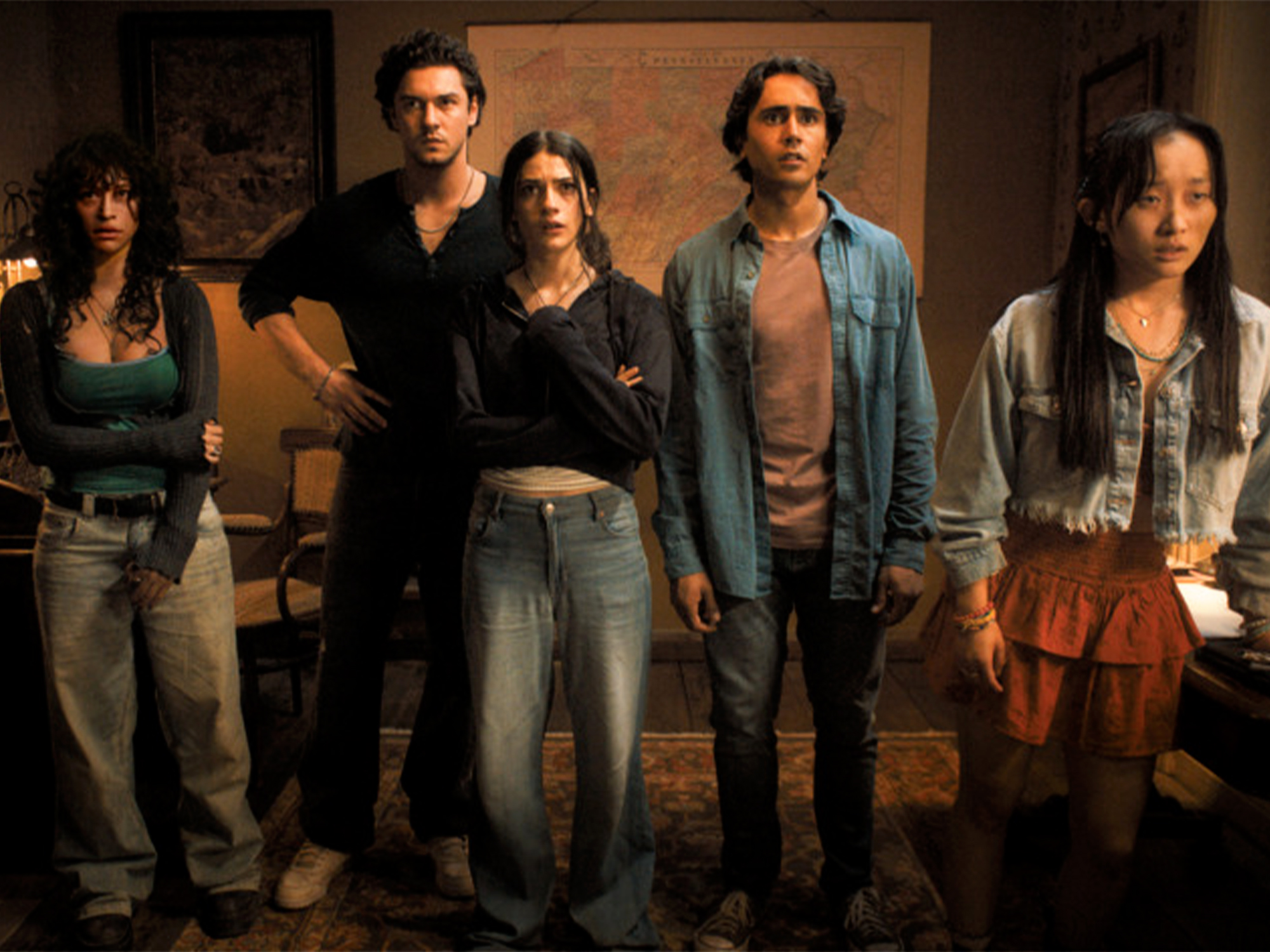
Presence, The Play by WIlliam Jefferson
What’s it About?
A penetrating perspective on the vital role of personal presence, and the threatening, dehumanizing effect of AI.
“We are swiftly dehumanizing the Race. Like wildebeests, they race headlong into discarnate adventure and the so-called wonders of AI. They long, like Eve, to free themselves from their old, hardwired brains. … Humans have become lab rats of their own making. In their quest to cast off the eye of Deity and attain self-mastery, they’ve built massive platforms powered by algorithms. … The Race is just now waking up to the fact that AI and algorithms, fueled by data, take on a life of their own. Humans are weak—no match for the machines they’ve made. What’s been set in motion cannot be undone. The same with Eve, it was, when she pressed her teeth through the apple skin.”
These words, part of a masterfully choreographed monologue spoken by Lucifer upon the charred plains and pinnacles of Hell, are but one of the many highlights of the stellar performances packed into SueMedia Production’s audiobook adaptation of Presence, the Play by William E. Jefferson, the latest in Jefferson’s series of novels set on (or in this case, somewhere beyond) the Isle of Estillyen.
It’s the story of Script (Audie Award winner Gary Furlong), an Estillyen playwright and monk, who has the misfortune of hitting his head and slipping into a deep coma on the opening night of his long-awaited play, Presence. He soon finds himself in a strange sort of limbo world centered around a meadow with five gates and doors, each leading into a scene related to the life and times of Christ, and beyond that scene, a path to hell.
STELLAR PERFORMANCES
He is joined in his adventures by three guides, Sage (Robert Fass) and biblical figures Simon of Cyrene (Cary Hite) and Melchizedek (Deondra Kamau Means), along with a stalwart companion, a mockingbird named Mock (Doug Shapiro). Together, they match wits with Lucifer (Simon Jones), racing against time to decode an imminent plan to bring about the End Times and destroy humankind, beginning with Script’s own beloved island. (Learn more in our previous review of the novel, here.)
The audiobook, directed by the highly inventive Sue Zizza, features a full cast of voice actors, many of them veterans in the field. Nancy Wu takes the lead as the book’s narrator, a reassuring, placid backdrop to the action unfolding across the soundstage. Gary Furlong captures well the essence of Script, leveraging his admirable range in handling the protagonist’s emotional rollercoaster from playful ingenue to self-doubting hero to traumatized witness. Doug Shapiro’s Mock is a wonder to hear, and amid his trills and squawks and babbling bits of garbled words, a character emerges that’s as sweet as it is intelligent. This is no small feat.
But perhaps the most impressive performance belongs to Simon Jones (Downton Abbey, Hitchhiker’s Guide to the Galaxy). His Lucifer is gleefully evil, erudite and commanding. Zizza’s sound direction really shines here, as she weaves creative voice editing and processing with an accompanying soundscape that makes Lucifer’s soliloquies especially terrifying and disorienting.
INTELLECTUAL AND EMOTIONAL DEPTH
I recently had the opportunity to ask Jones about his role in the project, and what he thought of Jefferson’s depiction of Lucifer. “Lucifer has a chip on his shoulder because he believes he has been wronged. That being cast out of heaven is an injustice,” Jones explains. “He’s convinced himself that he did nothing wrong. He’s quite bitter. He expresses this through his manipulation, or his intended manipulation, of social media. I mean, it feels as if somebody has been controlling social media, and it might as well be Lucifer. It certainly doesn’t seem to be on the side of the angels.”
Indeed, leveraging the discarnate displacement of our identities into social media profiles is only the beginning of Lucifer’s far-reaching plot. The mediation of reality via algorithmic manipulation across the many digital platforms with which we engage detaches us from society, plunging us into an echo chamber of our own biases, fears and desires. And now with the dizzying rise of AI, we can’t even be certain whether we are communicating with another human being. Ultimately, Lucifer’s plan is to convince mankind to make the final leap to discarnate existence, where we can live forever as ghosts in the machine.
It is this aspect of Presence, the Play that resonates eerily as the 0s and 1s of digital audio fill our ears and our minds’ eyes with the sounds and sights of a world beyond our own reality, a world captured and preserved forever. Thankfully, in this case it’s only us humans in the creator’s seat. Can AI ever really replace authors — or actors for that matter? Enjoying as I do the intellectual and emotional depth of human creativity, I dearly hope it never succeeds.
About the Author:
William Jefferson is on the board of the Marshall McLuhan Initiative (MMI) in Winnipeg, Manitoba, Canada. He writes from a Civil War-era cottage in the rural Ozarks and is the owner of Storybook Barn, an all-occasion event venue. He holds an MTh in Theology and Media from the University of Edinburgh, and an MA in Communication from the Wheaton Graduate School. Visit www.estillyen.com.

Publish Date: 5/1/2021
Author: WIlliam Jefferson
Page Count: 262 pages
Publisher: Port Estillyen Production































:quality(85):upscale()/2022/01/31/928/n/1922564/d3ab283161f851c4033582.14757686_.jpg)





